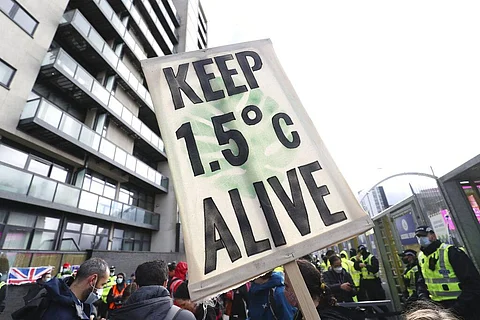

The COP26 summit ended with many pious declarations as to what nations, industries and individuals will do to reduce climate change, the greatest threat today to the environment and to all the citizens in the world. Our children’s future is in great danger. Some critics and cynics may say that such pious declarations were made even a few years ago in the Paris Accord, but very little was done by the rich nations. And that the rich nations did not live up to their declarations. This is true. However, this time, they appear to be more serious and committed.
I believe hope is better than despair and that the level of consciousness, this time around, is higher after everyone has seen the massive floods in Germany and the forest fires in the US, Australia, Canada, Greece and even Siberia. The rich countries generally react when they get hit. We all have also witnessed the devastating effects of Covid, from which even today there is no respite. The pandemic is also an effect of wanton destruction of nature. The virus that used to spread from one animal to the other has now crossed over to human beings due to our close interactions with them for food. We are killing over 70 billion animals every year. Can we not go vegetarian two days a week?
An awareness has encapsulated everyone that when a pandemic hits us, it could have devastating impacts, albeit on various levels, on all countries across the globe. And people could die in large numbers. It is important to get everyone from Africa to Australia vaccinated, because borders are porous and the virus travels at a faster pace than what we can imagine. Conservative populist responses such as sealing borders to protect oneself have helped no country till date. We have witnessed it with the initial strain of the coronavirus, its Delta variant and now Omicron. As on date, the Indian government and the respective state governments have done well in vaccinating the people and there has been a healthy synergy between them. India is also far ahead in sustainable development than many other countries.
The pandemic and the above mentioned series of natural disasters have exposed the disparities that exist in the world. The answer to these issues lies in inclusive development. The rich countries need to fund the poor nations for vaccinating their population and help them develop cleaner energy by giving them outright grants instead of loans. Poor countries have no capacity to pay back loans. Similarly, all nations, rich or poor, small or big, capitalist or Marxist need to drown their differences and come together to fight the pandemic and climate change. They need to jointly pave the way for sustainable development. The European Union, the UK and the US coming together against China, Russia and the likes could be a recipe for disaster that could lead to global conflicts.
However, I see some hope at three levels of responsible management for sustainable development. One, the governments of more than 190 countries came together at the COP26 and pledged to reduce carbon emissions and move towards a sustainable way of living. Two, many industries have adopted a responsible way of management and governance and they have decided not to further pollute the earth. Three, NGOs like Greenpeace and Friends of the Earth International have made a stellar contribution by forcing industries to behave in a responsible manner. Also, there are encouraging signs globally. For instance, the Danish Parliament in December 2020, under pressure, announced that it will cancel all future licencing rounds for new oil and gas exploration and production permits in its part of the North Sea and end existing production by 2050. As a major oil-producing country in the EU, Denmark’s announcement is a landmark decision towards the necessary phase-out of fossil fuels. Similarly, due to the pressure exerted by Greenpeace, Australia-based Bunnings, a household hardware chain, announced in October 2020 that it will cut emissions by 2,57,000 tonnes of C02 and invest in solar and wind to produce around 110 MW. This power is equivalent to what can power about 44,000 Australian homes.
The Fisk and Crawford coal plants in Chicago, US, had decided to shut down the archaic plants in 2012 and Chicagoans had reclaimed their right to clean air. Danone, a food company, had announced plans in 2012 to stop using products from Asia Pulp and Paper (APP) in their packaging. Many Indian industries like TVS Motors and Hindustan Unilever have also started making attempts.
The media has also played a constructive role to stop the endangering of biodiversity in Goa and many parts of India, where under the pressure of certain industries, the rivers are being widened and deepened. This could destroy the flora and fauna of the water. It is time for everyone including the governments, industries and NGOs to become a responsible partner in creating a sustainable future for the planet.
Ashoke K Maitra
Founder and CEO, Sri Ramakrishna International Institute of Management
(ashoke.maitra@gmail.com)